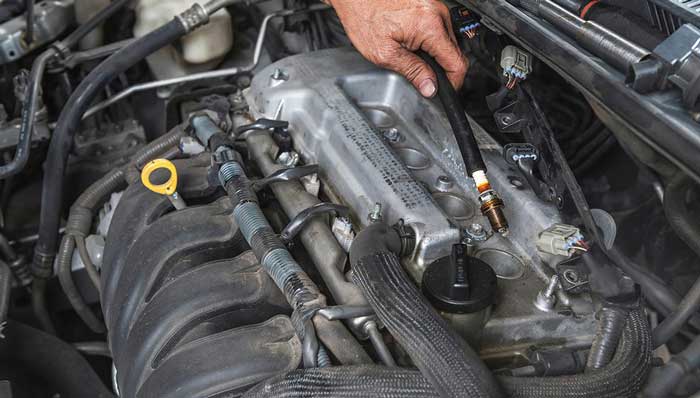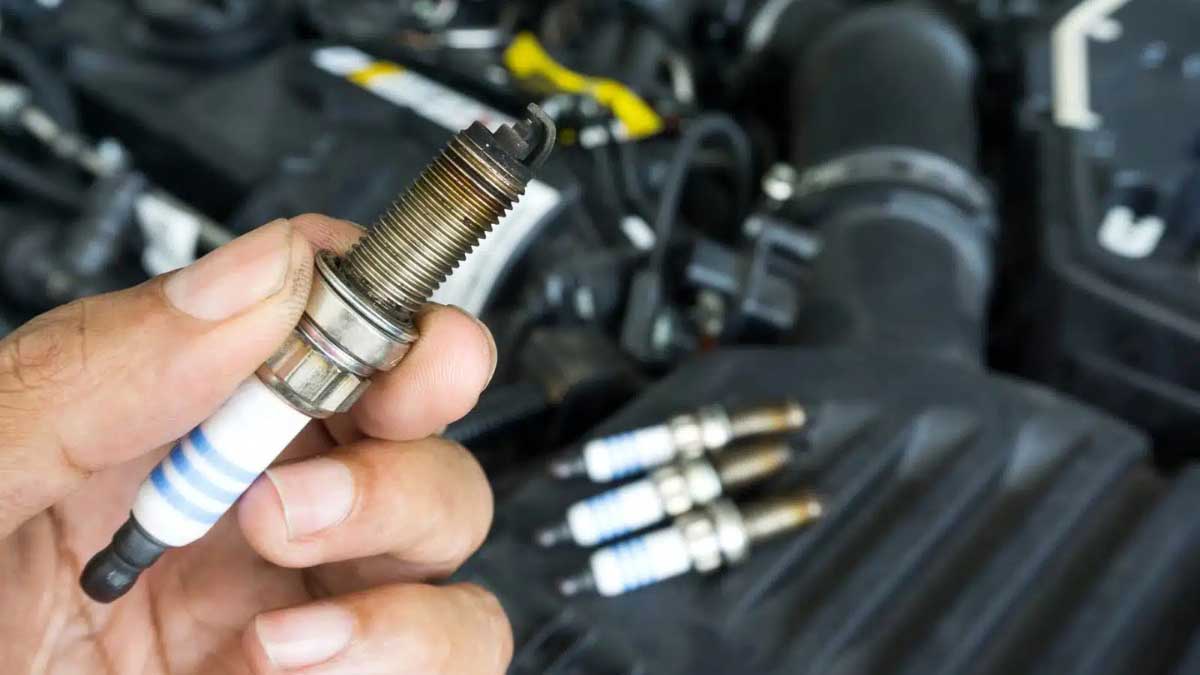So, picture this: you’re cruising down the road, feeling like a boss in your trusty vehicle, when suddenly, cue dramatic music, it starts shaking like it’s doing the cha-cha. What’s going on, you wonder? Well, my friends, you might be experiencing the dreaded engine misfire! Don’t worry; I’ve got your back with some insights into the symptoms and causes of this quirky car conundrum.
Understanding Engine Misfire
Let’s jump into the wacky world of engine misfires! Just like a car attempting the cha-cha dance, an engine misfire can throw your ride into a funk. I’ll break down what exactly this phenomenon is and explore the quirky causes behind it.
What Is Engine Misfire?
Ah, the elusive engine misfire! It’s like your car’s way of saying, “Oops, I tripped on a spark plug!” An engine misfire occurs when the combustion cycle in one (or more) of your engine’s cylinders doesn’t go as planned. Instead of a graceful dance of fuel and air igniting perfectly, you get a clumsy stumble that leads to poor engine performance and those dreaded jerks and shakes while driving.
Common Causes of Engine Misfires
So, what’s causing your car to break out in these misfire hiccups? Here are some usual suspects:
- Spark Plug Woes: These little guys are the life of the combustion party. When they start malfunctioning, misfires are bound to happen.
- Fuel System Gremlins: From clogged fuel injectors to a failing fuel pump, issues in the fuel system can throw a wrench into your engine’s smooth operation.
- Airflow Anomalies: A disruption in the airflow, whether due to a dirty air filter or a faulty sensor, can lead to misfires that make your car feel like it’s practicing its dance moves on a bumpy road.
- Electrical Shenanigans: Problems with the ignition system or faulty wiring can turn your engine into a misfire maestro, performing an unwanted symphony of jerks and jolts.
- Mechanical Mayhem: Sometimes, internal engine issues like low compression or a leaking head gasket can also invite misfires to crash your driving experience.

Identifying Symptoms of Engine Misfire
Wondering if your car is secretly training for a cha-cha competition without your knowledge? Let’s jump into the world of engine misfires to uncover the not-so-fancy dance moves it may be attempting behind your back.
Performance Issues
When your car starts behaving like a reluctant dancer with two left feet, you might be dealing with an engine misfire. Here’s how it likes to showcase its lackluster performance:
- Loss of Power: Picture this – you’re accelerating, but your car decides to take a coffee break midway, leaving you hanging.
- Poor Acceleration: Ever felt like your car is challenging a snail to a race? That sluggish acceleration could be a sign of an engine misfire.
- Rough Idling: If your car’s idle feels more like a shaky maraca than a smooth hummingbird, it might be time to investigate further.
Audible and Visual Clues
Apart from lackluster performance, your car may drop some hints through its sounds and sights. Listen and look out for these telltale signs:
- Engine Stuttering: A rhythmic stuttering sound coming from your engine could be its way of saying, “Help, I can’t dance properly!”
- Jerky Movements: If your car’s movements resemble a toddler learning to walk – all wobbly and uncoordinated – an engine misfire could be the culprit.
- Illuminated Check Engine Light: Consider this your car’s cry for help. When the check engine light starts flashing, it’s like your car waving a distress flag, signaling something’s amiss.
Diagnosing Engine Misfire
Well, well, well, time to put on my detective hat and get to the bottom of these engine misfires. Let’s jump into how we can diagnose this issue without breaking a sweat!
Tools and Techniques
I grab my trusty tools and unleash my inner Sherlock Holmes to solve this engine misfire mystery. Here’s what I need in my arsenal:
- OBD-II Scanner: This little gadget is like my magnifying glass, revealing vital clues by scanning for trouble codes.
- Spark Tester: Time to ignite some spark (literally)! This tool checks if the spark plugs are sparking as they should.
- Fuel Pressure Gauge: I channel my inner scientist with this gauge to ensure the fuel system is delivering the right amount of fuel.
- Compression Tester: Pressurize and analyze! This tool helps me check if the cylinders are airtight and firing correctly.
When to Seek Professional Help
So, when do I throw in the towel and call in the expert reinforcements?
- Persistent Misfires: If the misfires keep coming back even though my best efforts, it’s time to call a pro.
- Complex Diagnosis: When things get too tricky or require specialized equipment, it’s okay to admit defeat and seek professional help.
- Limited Tools: If my toolbox looks more like a cookie jar than a professional kit, it’s a sign to let the experts take the wheel.
Solutions for Engine Misfires
Let’s rev up and tackle those engine misfires head-on! As a car enthusiast, I know how frustrating it can be when your vehicle starts cha-cha-ing without your consent. Fear not, here are some solutions to get your engine purring smoothly again.
Immediate Actions
When your engine starts playing tricks on you, it’s time to take immediate action. Here’s what you can do:
- Check Spark Plugs: Inspect those little spark plugs; they might be the culprits behind the misfire dance.
- Inspect Ignition Coils: These coils are like the conductors of the combustion orchestra; make sure they’re in tune.
- Scan for Trouble Codes: Your car’s way of sending SOS signals; hook up an OBD-II Scanner and decode the message.
- Investigate Fuel Injectors: Ensure your fuel injectors are injecting fuel, not mischief, into your engine.
Remember, these quick fixes can help you nip the misfire in the bud and get you back on the road in no time!
Long-Term Fixes
For a more lasting solution to those pesky engine misfires, consider these long-term fixes:
- Regular Maintenance: Give your engine some love with routine check-ups and maintenance.
- Quality Fuel: Fuel your ride with the good stuff; low-quality fuel can lead to performance hiccups.
- Professional Tune-Up: Sometimes, it’s best to let the pros work their magic; schedule a tune-up with your trusted mechanic.
- Address Underlying Issues: Don’t ignore warning signs; address any underlying issues promptly to prevent future misfires.
Conclusion
Well, folks, it’s been a wild ride through the world of engine misfires. From the funky cha-cha dance of combustion disruptions to the dramatic symptoms like power loss and jerky movements, we’ve covered it all. Remember, that check engine light is your car’s way of saying, “Help, I’m misfiring!” So, don’t ignore it. Whether it’s a quick spark plug check or a deep jump into your fuel injectors, taking action now can save you from future misfire mayhem. And if things get too spicy to handle, don’t hesitate to call in the pros. Keep those engines firing smoothly, and may your rides be misfire-free!
Frequently Asked Questions
What is an engine misfire?
An engine misfire occurs when the combustion process in a cylinder remains incomplete, causing the engine to stutter or lose power momentarily. Even one misfire can lead to damage and increased emissions and fuel consumption.
What are the common culprits behind a misfiring engine?
Common causes of engine misfires include issues with the ignition system beyond just spark plugs, such as control modules, crankshaft position sensors, and coil packs.
How does an engine misfire feel like?
An engine misfire can cause hesitation, loss of power during acceleration, rough idling, shaking, jerky movements, violent shaking, and even stalling when using accessories like A/C or lights.
What does an engine misfire sound like?
An engine misfire can be identified by popping, sneezing, or banging sounds coming from the exhaust due to unburnt fuel leaving the cylinder.
Why does an engine misfire occur?
Engine misfires happen when a component like a spark plug or fuel injector fails to work correctly, leading to power loss, hesitation, reduced performance, and possible engine damage.

